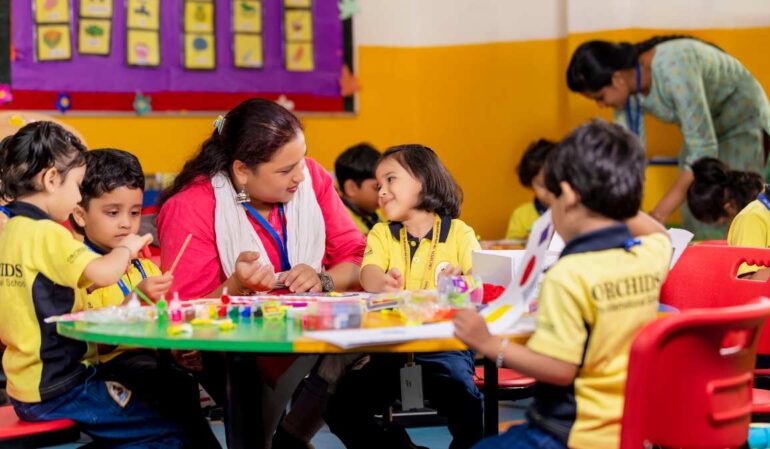
A Checklist for Parents of Preschoolers
As a parent, one of the biggest milestones you’ll face is sending your little one off to school. But how do you know if your child is really ready? The truth is, school readiness isn’t just about knowing the alphabet or counting to ten. It’s about whether your child is emotionally, socially, and developmentally prepared to thrive in a group setting.
Many parents feel anxious at this stage— “Will they manage without me?” “ What if they don’t make friends?” These are valid concerns, and you’re not alone in asking them.
Let’s walk through a practical, professional checklist that can help you reflect on your child’s readiness in a calm and informed way.
1. Can My Child Separate From Me Without Excessive Distress?
This is often the biggest worry for parents. A few tears at drop-off are normal, but if your child struggles to separate even after a few weeks of routine, it might be worth building more comfort with short separations now.
Tip: Practice leaving your child with a trusted adult for short periods and always return when you say you will. Predictability builds trust.
2. Can They Follow Simple Instructions?
School routines involve a lot of listening and responding. Can your child follow two-step directions like, “Put your shoes away and come to the table”? This reflects both listening and memory skills.
Tip: Give small tasks at home that involve listening and action. Praise follow-through.
3. Are They Able to Express Their Needs With Words?
Your child doesn’t need perfect sentences, but they should be able to say when they’re hungry, need to go to the bathroom, or feel unwell. This helps them feel safe and heard in a group setting.
Look for phrases like: “I need help,” “I’m tired,” “I want water,” etc.
4. Can They Sit and Focus for Short Periods?
Preschool activities are short and engaging, but they do require basic attention spans. Can your child sit for 5–10 minutes for a story or a puzzle?
Tip: Start with short tabletop activities at home—puzzles, books, or simple crafts.
5. Are They Comfortable Around Other Children?
Social readiness doesn’t mean being outgoing—it means your child can engage, share space, wait their turn, or show curiosity about peers.
Tip: Playdates, park visits, or group classes are great ways to build social comfort.
6. Are They Developing Self-Care Skills?
Your child doesn’t need to be fully independent, but being able to:
- Eat on their own
- Attempt to wear their shoes
- Indicate when they need the toilet …makes school smoother and gives your child confidence.
Tip: Let them “do it by themselves” even if it takes longer. The practice is priceless.
7. Are You Ready to Let Go a Little?
This one’s for you, dear parent. Sometimes, our own anxiety can send mixed messages to our children. When we are confident in the process, they feel more secure.
Tip: Talk about school with excitement. Visit the school, meet the teachers, and show them it’s a happy, safe place.
In Conclusion: It’s Not a Race
Every child grows at their own pace. Some are ready at 2.5 years, others closer to 4—and both are okay. Readiness is not about perfection but about potential for adjustment . If your child isn’t ticking all the boxes yet, don’t worry—there’s still time, and support can make all the difference.
When in doubt, talk to your child’s teachers, early educators, or a developmental counselor. Together, we can make sure the school journey begins with joy—not pressure.


Hi, this is a comment.
To get started with moderating, editing, and deleting comments, please visit the Comments screen in the dashboard.
Commenter avatars come from Gravatar.